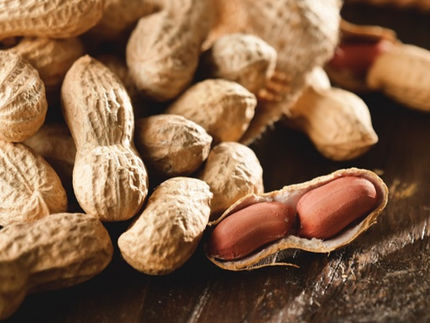Brazilian scientists develop functional bread to help prevent asthma
Bread produced with probiotic yeast performed well in experiments with mice, showing potential to combat asthma, which affects 20 million Brazilians.
Brazilian researchers have developed functional bread with the potential to prevent asthma, a respiratory disorder responsible for some 350,000 hospitalizations per year in the SUS (Sistema Único de Saúde), the nation’s public healthcare network.

Researcher Ana Paula Carvalho (left) making dough enriched with microcapsules of S. cerevisiae UFMG A-905 (bottom right)
Ana Paula Carvalho
The formulation, for which a patent application has been filed in Brazil (BR1020210266465), is described in an article published in the journal Current Developments in Nutrition. It contains Saccharomyces cerevisiae UFMG A-905, a strain of brewer’s yeast with probiotic properties that has been shown to attenuate the symptoms of asthma in mice (read more at: agencia.fapesp.br/40733). Further trials involving human volunteers are still required.
One of the most common diseases in the world, asthma is increasingly frequent and affects some 20 million Brazilians, according to the database maintained by the Ministry of Health (DATASUS). It is characterized mainly by airway inflammation and hyperresponsiveness. Its exact causes are poorly understood, but it is known to be associated with environmental irritants, diet, and gut microbiota, among other factors.
Asthmatic patients can benefit from ingestion of probiotics thanks to the link with gut microbiota. These beneficial bacteria are typically administered on their own or blended with dairy products such as milk, yogurt and kefir, but nothing prevents the use of other vehicles, which is advisable for patients who suffer from lactose intolerance or milk protein allergy.
In this study, which was funded by FAPESP, researchers at the University of São Paulo (USP) included S. cerevisiae UFMG A-905 in naturally fermented bread for the first time. Groups at the State University of Campinas (UNICAMP) and the Federal University of Minas Gerais (UFMG) collaborated on the project.
To assess its potential, the researchers tested and compared three types of bread. The first was fermented with commercial yeast, the second with S. cerevisiae UFMG A-905, and the third with S. cerevisiae UFMG A-905 plus microcapsules containing live S. cerevisiae UFMG A-905.
“We added encapsulated live yeast in order to improve probiotic viability and activity at the high temperature reached during the baking process,” said Marcos de Carvalho Borges, last author of the article and a professor in the Department of Clinical Medicine at the Ribeirão Preto Medical School (FMRP-USP). “Microcapsules protect bioactive and probiotic compounds, improving their stability, survival and bioavailability.”
Mice with asthma were fed the different types of bread for 27 days. At the end of the experiment, the mice fed S. cerevisiae UFMG A-905 bread displayed less airway inflammation and lower levels of asthma biomarkers (interleukins 5 and 13, or IL5 and IL13, which are proteins secreted by the immune system).
In mice fed the bread containing microencapsulated yeast, airway hyperresponsiveness and levels of IL17A, another biomarker of asthma, were also reduced. These results were similar to those of previous studies, confirming that live S. cerevisiae UFMG A-905 can help prevent asthma.
“We found that both types of bread fermented with S. cerevisiae UFMG A-905 prevented the development of asthma in the mice, which in conjunction with the results of other experiments shows that this yeast has highly consistent effects and appears genuinely capable of combating this respiratory disorder,” Borges said.
Next stage: clinical trial
While acknowledging the limitations of the study, such as not including bread fermented with commercial yeast plus microcapsules and not assessing the survival of S. cerevisiae UFMG A-905 microcapsules after baking, the scientists believe they can now take the next step, which will consist of developing a protocol for a clinical trial to observe the effects of the yeast on human beings.
“The product has significant potential,” Borges said. “Bread is a natural food consumed by almost everyone including children. It’s easily distributed and has a good half-life on the shelf.”
The study was also funded by the Ministry of Education’s Coordination for the Improvement of Higher Education Personnel (CAPES). The other co-authors of the article are Ana Paula Carvalho Thiers Calazans and Thamires Melchiades Silva Milani, researchers affiliated with FMRP-USP; Ana Silvia Prata and Maria Teresa Pedrosa Silva Clerici, professors at UNICAMP’s School of Food Engineering (FEA); and Jacques Robert Nicoli and Flaviano Santos Martins, professors at UFMG’s Institute of Biological Sciences (ICB).































































